BY BEN COLLINS
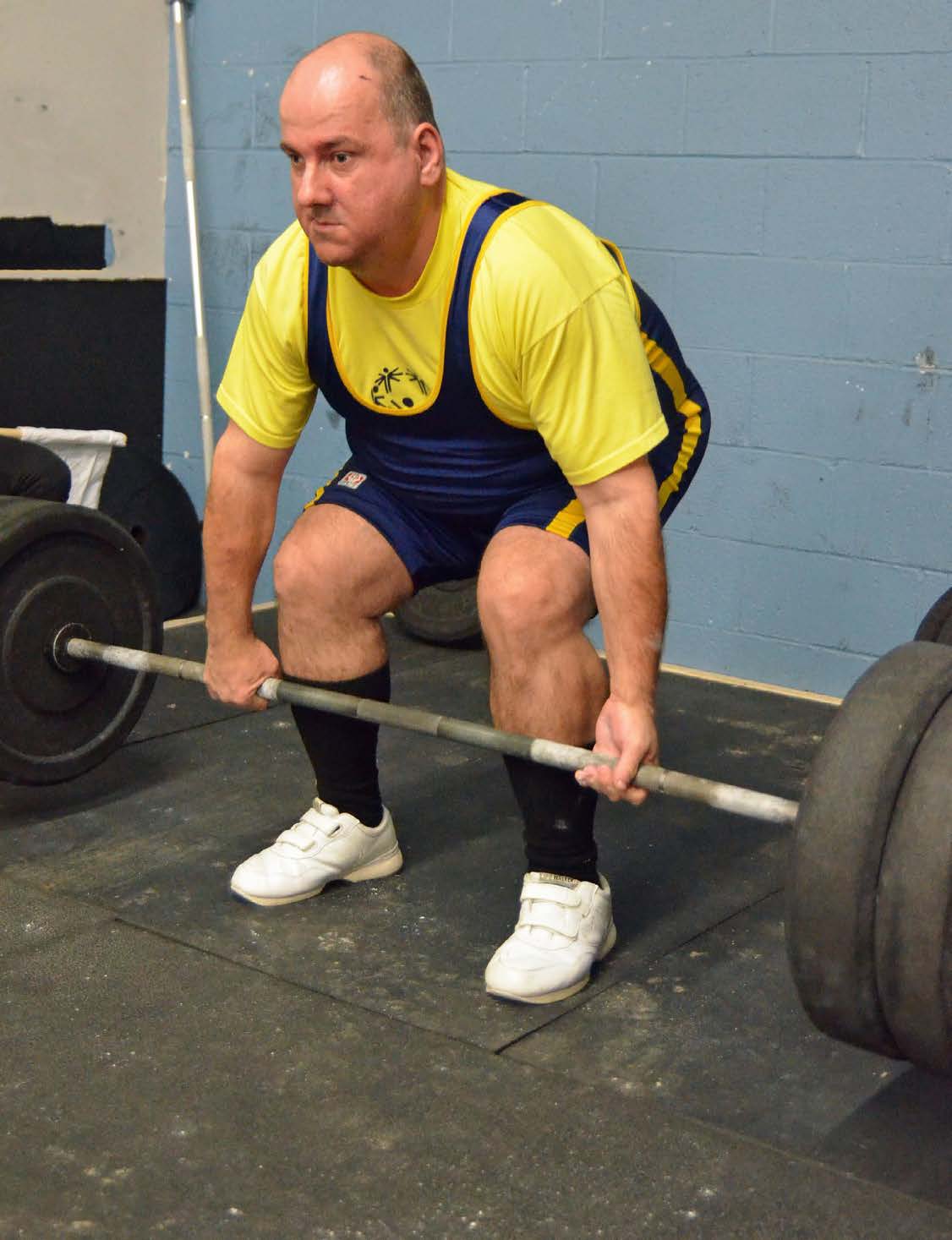
Hello, my name is Ben Collins, and here is my story. I have been working at Special Olympics International in Washington, D.C. for 27 years, in the Marketing and Development Department as Operations Specialist. I sort and deliver the mail for the department, conduct donor calls two times a week to thank donors for supporting our programs, lead interviews and office tours, type Braille nametags, act as the department's co-budget officer, maintain the press kits, participate in Capitol Hill Day to get members of Congress to support Special Olympics, lead the team meetings, and send calendar invites.
When I was nine years old, I was diagnosed with retinitis pigmentosa, or RP. I have tunnel vision and night blindness. I can only see shadows and shapes. Because I am visually-impaired, I have to listen very closely to people when they are talking to me. Growing up, when I was in school, I had a vision teacher and a mobility teacher. When I left school, my first job was working at a button factory, called A Major Production. It started out as a temporary posi tion but led to a fulltime job. I was there for two-and-a- half years.
At Special Olympics, I use three special needs equipment devices on my desk every day. The first is the visual tech which helps me do the mail every day at my desk. It's like a giant magnifying glass. It magnifies the print, and it works because I can see the shadows of the address label on the mail. The next thing I use is the computer. It's called the JAWS system. When people hear about the JAWS, they think it is a shark, but it's a computer program for people who are visually impaired. The last thing on my desk is a Braille typewriter. It has six keys, and I make Braille nametags for everyone in the office. It helps me find their desks, especially when I am giving tours to new employees.
Commuting to work can be hard for people who are visually impaired. I take public transportation every single day of the week. First, I ride on the bus in my neighborhood, and it takes me to Rockville Metro Station. Then I wait for the Metro. Then I take the red line to Farragut North Station, and every day I listen to all the sounds and voices to figure out where I am going. Everything on the train and the bus is voice-activated, so I can listen to where I'm going. Then I have a 10-minute walk from the station to work. The hardest part of my commute is when I have to cross two streets. When I cross the street, I listen for the traffic or ask somebody when it is safe to cross. I have to listen really hard to the sounds of the traffic. Because crossing those streets was so dangerous for me, I wrote an email to the D.C Department of Transportation, using my voice to try and get crosswalk-warning systems installed on my route to work. The Department of Transportation responded to my email right away and met me outside the street to take photos and talk to me. They promised to install the crosswalk-warning systems and, in a month, they had! My commute is much easier now and I feel safer when I cross the street and go to work.
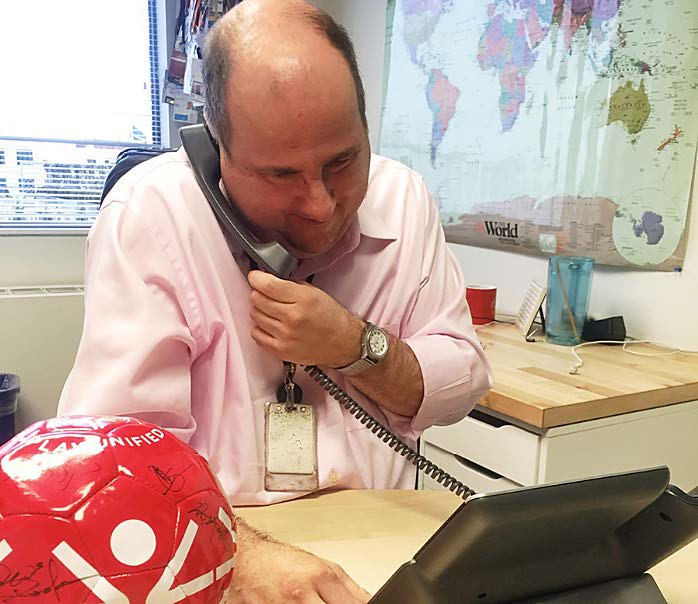
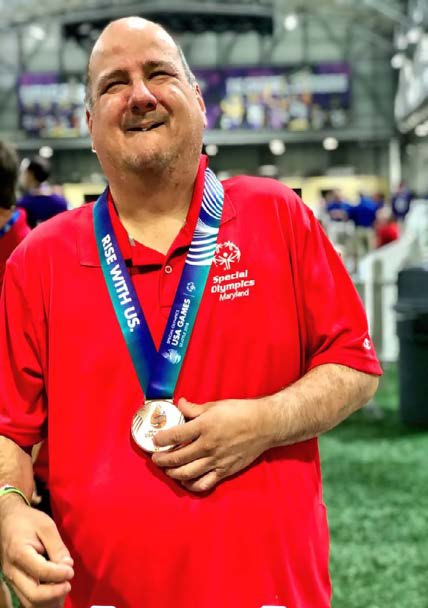
WORLD BEATER: (Opposite page) Ben competes in powerlifting with Special Olympics Maryland; (Below) Making phone calls at Special Olympics headquarters, and showing off a medal from USA Games (photo credit: Sally Cohen)
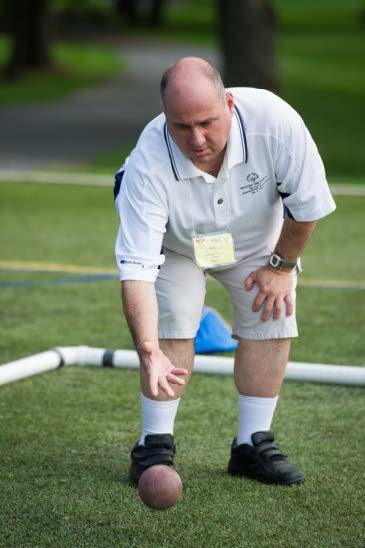
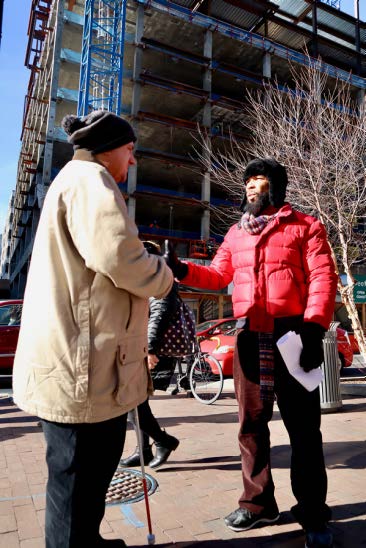
ON THE BALL: (Above left) Ben throws a bocce ball during a state competition; (right) Ben meets with Anthony from the Department of Transportation to discuss crosswalk warning systems for his commute.
I wish that people closed their eyes for five minutes every day, or tried to walk outside to see what it's like for somebody like me. If I didn't have my folding cane, I would run into tables, chairs, trees, walls, or anything on the ground. I wish that people would wear a blindfold to see what it's like for people who can't see at all, and that's why I always say, "Welcome to My World."
This year, I went to the Special Olympics USA National Games in Seattle, Washington. I participated in the sport of bocce for Team Maryland. I won two silvers and a bronze medal. For me, I have to listen to the voices of the officials to tell me where the polena is. A polena is the little ball that is thrown down the playing field to start a game of bocce. The official stands over the polena and he/she asks, "Can you hear me?" If I can't hear him or her, I ask them to say it again. Then I roll the ball. I usually roll the bocce ball against the wall because it is good strategy. Bocce is a game where players need to see where the polena is. I have to picture the field of play in my mind and use the sound of the official to help guide me when I throw the bocce balls. I have been a Special Olympics Maryland athlete for 39 years, and the USA Games was my first time competing outside the state of Maryland. I also compete in powerlifting.
I wish that I could talk to everyone who just learned they have retina pigmentosa or other visual impairments, to let them know that life's an obstacle course, but you can get around the obstacles. Sometimes I get frustrated because it is hard when you can't see anything, but I have a good full life, and you can do anything when you put your mind to it! Don't underestimate me! •
ABOUT THE AUTHOR: Ben Collins has been with Special Olympics International in Washington, D.C. for 27 years, with the organization's Marketing and Development Department.